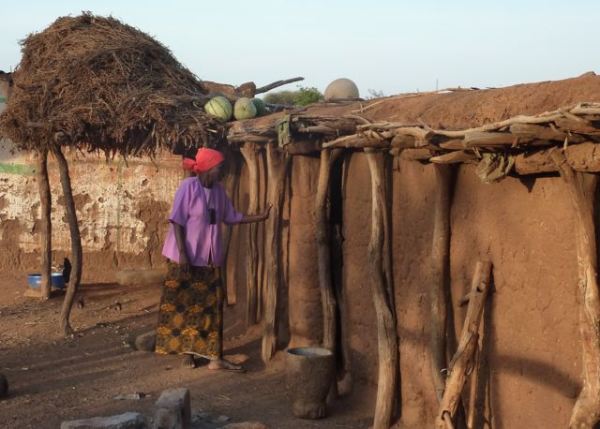Climate change is a devastating reality in Tanzania where higher temperatures are resulting in regular droughts and the rapid melting of the snowy peak of Mount Kilimanjaro. Difficult lives are getting even tougher, so the European Union Delegation to Tanzania has come up with an innovative eco-village.

Tanzania’s Mount Kilimanjaro has lost over half its glacier in the last 50 years and by 2031 scientists expect the mountain will be entirely ice-free. It’s one of the world’s most visible reminders that climate change is real and happening right now.
Villagers across the country have paid a high price, as they have faced: six droughts in the last 30 years due to erratic rainfall and higher temperatures, making their already poor region, poorer.
Whilst serving as Head of Delegation to Tanzania, Tim Clarke made a commitment to tackling the negative effects of climate change, which he believes is hitting the world’s poorest people hardest.
Today Mr Clarke works in Brussels as Head of Division for CSDP Policy, Partnerships and Agreements in the Crisis Management and Planning Directorate at the European External Action Service, and he continues to promote climate change as an absolute priority.
“If you’re looking at development issues, the people that are most vulnerable in terms of poverty are those people who are living usually in the areas that are most fragile and subject to climate change,” he said at last month’s Global Climate Change Alliance (GCCA) conference.
Climate change is mainly caused by the increasing quantities of pollutants being pumped out by cars, industry and homes across the world, changing the natural balance of the earth’s atmosphere and resulting in a ‘greenhouse effect’ of rising temperatures.
To tackle climate change in Tanzania, the EU Delegation funded an eco-village project in Chololo, some 400km east of the capital Dar Es Salaam, as a model of good practice in climate change adaptation.
The project, managed by the Tanzanian Institute of Rural Development Planning came at just the right time. Climate change, and more specifically the rising incidences of drought, were making day-to-day living tougher for the people in Chololo, where the women had to walk up to five hours to collect firewood for daily cooking.
As part of the eco-village project, the community was empowered to test, evaluate and take up 20 climate change-related innovations in agriculture, livestock, water, energy, and natural resources.
Concretely, the community has planted 17,500 trees, reaching a 75% survival rate. Ten domestic biogas plants have also been constructed to supply villagers with power for cooking and lighting. Those still using firewood for cooking have now access to 60 improved stoves that supply the same quantity of energy with twice less wood. Even the school roof is being used in the battle to combat the negative effects of climate change. It’s been fitted with special rainwater catchers to gather tens of thousands of litres of fresh water.
After just one year, the community has recorded improved harvests, better food security and increased household incomes. The capacity of this vulnerable community has been strengthened so that they can adjust to the challenges of climate change with improved livelihoods and better natural resources management.
“We succeeded with relatively little money,” said Mr Clarke, “By word of mouth people are talking about it.”
The hope is that Chololo will be used as a model that can be replicated across the country and perhaps even the wider region. Lessons learned identified over the project stress the importance of addressing local government capacity to effectively manage climate change planning and implementation, as well as sustaining this capacity in the longer term. At the same time, an implementation team that has a range of skills and experience (water, energy, livestock, forestry, cultivation etc) certainly enables rapid responses to the wide spectrum of community adaptation needs.
To actively manage knowledge transfer from the eco-village experience to a wider group of stakeholders is an important aspect to keep in mind. It is expected that this and future projects will be linked to existing development planning processes, and that easy access to eco-village sites will allow key decision-makers to witness the adaptation initiatives providing an excellent opportunity to link field experience to policy formulation.
“It’s important to pick up on success stories,” said Mr Clarke, “and bring people together.”
This collaborative piece was drafted with input from Tim Clarke and Maria Iarrera, with support from the capacity4edv.eu Coordination Team.

Log in with your EU Login account to post or comment on the platform.